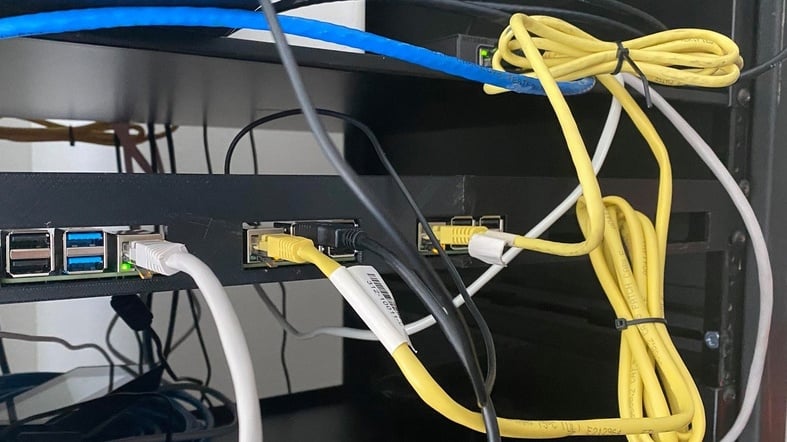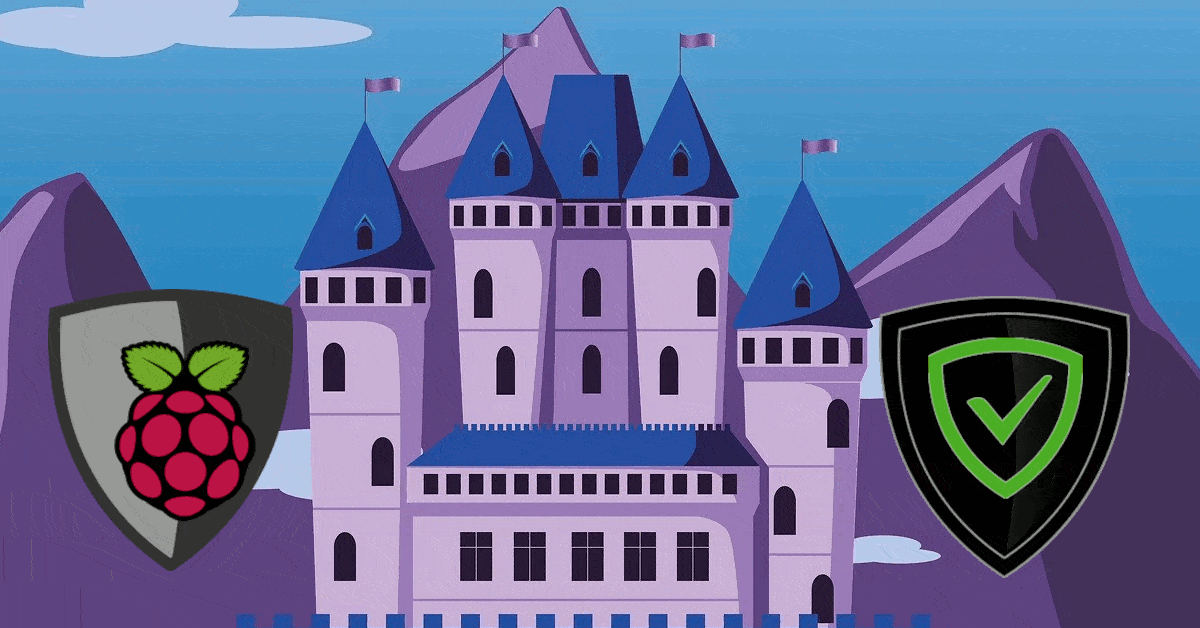Many operating systems and projects exist for Raspberry Pi development board. After you install a project or operating system one thing you may need to know right away is the Raspberry Pi default login.
Here we have assembled a collection of Raspberry Pi projects and operating systems along with various Raspberry Pi credentials. If you must look it up, keep this reference handy to help you remember.
Table of Contents
- Raspberry Pi Default Login
- Raspberry Pi OS
- Default Login for Pi-Hole
- Default Login for OpenMediaVault
- Default Login for MotionEyeOS
- Default Login for OpenHAB
- Default Login for Mycroft
- Default Login for Jeedom
- Default Login for DietPi
- Default Login for Kali Linux
- Default Login for Arch Linux
- Default Login for Recalbox
- Default Login for Lakka
- Default Login for RetroPie
- Default Login for piCorePlayer
- Default Login for OSMC
- Default Login for LibreELEC
- Default Login for Xbian
- Default Login for Rasplex
- Default Login for Ubuntu
- Default Login for Debian
- Default Login for OpenSUSE
- Default Login for Alpine Linux
- Default Login for QtonPi
- Default Login for ROKOS
- Default Login for MinePeon
- Default Login for Moebius
- Table of Raspberry Pi Default Credentials
- How to Change Raspberry Pi Default Login
- Conclusions
Raspberry Pi Default Login
Not only is it important to know how to login to the Raspberry Pi, but it is just as important to know how to change the password. An unsecured machine with a weak password is a risk to your home network and any network you connect to from your home.
The default password is the weakest password to use while connected to the Internet, and the easiest to hack. Here we talk about changing the Raspberry Pi default login password as well.
Raspberry Pi OS
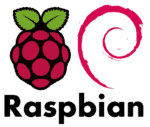
Raspberry Pi OS is a Linux operating system based off Debian, the distro for developers. The default OS for Raspberry Pi is Raspbian, and there are several releases of Raspbian.
Today, the operating system is referred to as Raspberry Pi OS or RaspiOS. The Raspberry Pi default login for Raspbian has always been the same.
| Raspberry Pi OS Default Username | Raspberry Pi OS Default Password |
|---|---|
| pi | raspberry |
Default Login for Pi-Hole

Pi-hole is typically installed on Raspbian or another compatible Linux distro such as Ubuntu. In our PiHole setup guide, we suggest installing it on Raspbian.
This means the Raspberry Pi default login is the same as that of Raspberry Pi OS.
| Pi-Hole Default Username | Pi-Hole Default Password |
|---|---|
| pi | raspberry |
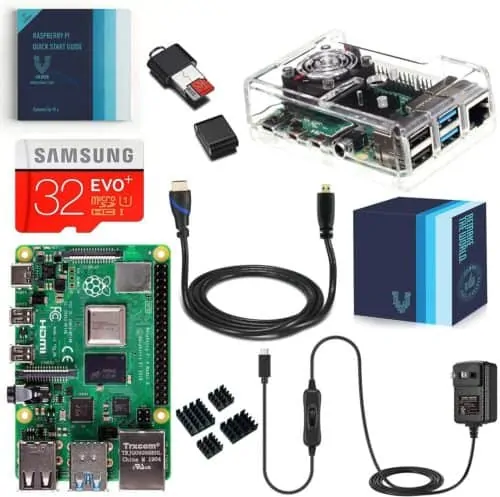
Default Login for OpenMediaVault

OpenMediaVault is a network attached storage solution based on Debian. With OpenMediaVault you can access your NAS Raspberry Pi device using services like SSH, SFTP, SMB/CIFS, DAAP media server, RSync, Bittorrent Client, etc. [Read: OpenMediaVault Raspberry Pi set up – SMB server using Raspberry Pi]
Because of the modular design of the OpenMediaVault framework it is very easy to develop useful plugins.
| OpenMediaValut Default Username | OpenMediaValut Default Password |
|---|---|
| admin | openmediavault |
Default Login for MotionEyeOS

MotionEyeOS is an operating system for MotionEye, the web-based version of Motion security software for home automation and surveillance. MotionEye is based on Motion, which is free open-source software.
It is also possible to run MotionEye in Docker and is much simpler to use than ZoneMinder. [Read: ZoneMinder Docker Guide for Beginners: Best Free Video Surveillance]
| MotionEye OS Default Username | MotionEye OS Default Password |
|---|---|
| admin | (blank) |
Default Login for OpenHAB

OpenHAB is home automation software that talks directly to your local devices.
The great thing about OpenHAB is its actively developed open source, and it is supported by a large community of developers and other volunteers for a large number of devices.
| OpenHAB Default Username | OpenHAB Default Password |
|---|---|
| openhab | habopen |
Default Login for Mycroft

Mycroft is home automation software for the Raspberry Pi, featuring its own voice assistant. Mycroft is compatible with every major operating system and a multitude of smart home devices. It is also compatible with many third-party apps.
| Mycroft Default Username | Mycroft Default Password |
|---|---|
| pi | mycroft |
Default Login for Jeedom

Jeedom is "The Software" for home automation and Jeedom supports Raspberry Pi models.
Jeedom allows you to connect all of your smart objects to each other.
| Jeedom Default Username | Jeedom Default Password |
|---|---|
| admin | admin |
Default Login for DietPi

DietPi is a highly optimized yet extremely lightweight Debian-based OS with low a process/memory footprint and DietPi-RAMlog installed to get the maximum performance from your Raspberry Pi. [Read: Setup Diet Pi on Raspberry Pi – Lightweight Server OS]
DietPi-Software makes installation of so many other apps and services a breeze (eg. Plex, Sonarr, Radarr, and many more). In terms of convenience, it is better than the official Raspberry Pi OS.
| DietPi Default Username | DietPi Default Password |
|---|---|
| root | dietpi |
| dietpi | dietpi |
Default Login for Kali Linux

Kali Linux is an open-source, Debian-based Linux distribution with software tools for advanced penetration testing, security auditing, security research, computer forensics and reverse engineering.
If you like browsing securely, choose Kali Linux and use a Tor browser to connect to a Tor Onion Server.
| Kali Linux Default Username | Kali Linux Default Password |
|---|---|
| root | toor |
Default Login for Arch Linux

Arch Linux is a lightweight and flexible Linux distro based on the concept of "Keep It Simple". Arch Linux provides every Linux method by giving the end user the means.
For instance, every Linux has a default shell, usually Bash. Arch Linux provides Bash and other shells like ZSH that can be used in its place or are the default shell elsewhere on other Linux distros.
| Arch Linux Default Username | Arch Linux Default Password |
|---|---|
| root | root |
Default Login for Recalbox

Recalbox is the absolute best in modern gaming on a micro-PC such as the Raspberry Pi. Free and open source you can contribute any improvements and patch any bugs. [Read: Recalbox vs Retropie: Which retro gaming OS should you use?]
You can build a DIY Recalbox with Raspberry Pi 4 and try before you buy the commercial Recalbox.
| Recalbox Default Username | Recalbox Default Password |
|---|---|
| root | recalboxroot |
Default Login for Lakka

Lakka is a lightweight Linux distro based on RetroArch that turns the Raspberry Pi into a retro game machine.
Also known as the DIY open-source retro gaming emulation console, Lakka lets you change the game.
| Lakka Default Username | Lakka Default Password |
|---|---|
| root | root |
Default Login for RetroPie

RetroPie turns your Raspberry Pi into a retro game machine.
Based off Raspbian, EmulationStation, RetroArch and other projects, this highly efficient OS enables you to play arcade games, console games, and classic PC games with minimal setup and configuration.
| RetroPie Default Username | RetroPie Default Password |
|---|---|
| pi | raspberry |
Default Login for piCorePlayer

The piCorePlayer is a complete home audio software system based on FOSS, free open source software.
The piCorePlayer plays local music as well as online music streaming services on a Raspberry Pi.
| piCorePlayer Default Username | piCorePlayer Default Password |
|---|---|
| tc | piCore |
Default Login for OSMC

OSMC stands for Open Source Media Center, a minimal Kodi Embedded Linux operating system. [Read: OpenELEC, LibreELEC, OSMC and Xbian – Comparison of operating systems for Kodi]
OSMC is maintained by developers and made for devs, tinkerers and hobbyists alike.
| piCorePlayer Default Username | piCorePlayer Default Password |
|---|---|
| osmc | osmc |
Default Login for LibreELEC

LibreELEC is a "just enough OS for Kodi" (or jeOS for Kodi) Linux distro with great software repos. It was forked from the, now obsolete, OpenELEC.
Most of the add-ons for LibreELEC run in Docker! Another caveat of LibreELEC is it resides on a read-only filesystem. No more fixing it again...
| LibreELEC Default Username | LibreELEC Default Password |
|---|---|
| root | libreelec |
Default Login for Xbian

XBian is a lightweight media center distribution for the Raspberry Pi, CuBox-i, Hummingboard. Booting to Xbian is like booting to any other operating system, except every app is a multimedia application. [Read: How to install XBian on Raspberry Pi – Lightweight Kodi OS]
Xbian is based on Debian with the slogan, “XBian, the bleeding edge!”
XBian rolling releases mean new package updates at least once a week. New improvements and bugfixes are delivered quickly and easily. Start using new releases automatically.
| XBian Default Username | XBian Default Password |
|---|---|
| xbian | raspberry |
Default Login for Rasplex

Rasplex is a Plex Client application for a Raspberry Pi Plex Media Server. Any device that supports Plex Media Server and support a Plex Client such as Rasplex. [Read: Speed up RasPlex on Raspberry Pi: 4 performance tweaks]
Rasplex can act as a client and server with Plex Media Server.
| Rasplex Default Username | Rasplex Default Password |
|---|---|
| plexuser | rasplex |
Default Login for Ubuntu

If you know Linux, you know or have heard of Ubuntu. Derived from Debian, Ubuntu is one of the most capable and versatile Linux distros popularly available. [Read: Ultimate Smart Home Media Server with Docker and Ubuntu]
Ubuntu is one of the most widely used distros with strong support for devices with lots of great open source software hosted in its distro repos.
| Ubuntu Default Username | Ubuntu Default Password |
|---|---|
| ubuntu | ubuntu |
Default Login for Debian

Debian Buster is available with Raspberry Pi OS desktop from the Raspberry Pi Foundation operating systems page. Debian supports rolling releases and uses upstream versions of all software.
Raspbian and Raspberry Pi OS (or RaspiOS) are derived from Debian, as are the majority of operating systems made for Raspberry Pi models.
| Debian Default Username | Debian Default Password |
|---|---|
| pi | raspberry |
Debian hosts upstream packages and typically used more by developers. Thus the phrase, "Debian is for developers"...
Default Login for OpenSUSE

OpenSUSE has long enjoyed a loyal following apart from typical Linux users because of its stability and its ability to act as an enterprise operating system.
If you want to find out more about what OpenSUSE users already know, download it and install it on your Raspberry Pi.
| OpenSUSE Default Username | OpenSUSE Default Password |
|---|---|
| root | linux |
Default Login for Alpine Linux

Small. Simple. Secure. Alpine Linux is a security-oriented, lightweight Linux distribution based on BusyBox. It is one of the leanest distros and commonly used to build docker images for several projects.
Alpine Linux is a very popular and well-maintained Linux distro that can be installed on the Raspberry Pi.
| Alpine Linux Default Username | Alpine Linux Default Password |
|---|---|
| root | (empty) |
Default Login for QtonPi

The goal of this project is to develop the required enablers for developers working with Qt 5 on the Raspberry Pi board.
QtonPi is great for Qt programmers and anyone who uses Qt code and Qt Creator, allowing you to develop on Raspberry Pi models and hardware add-ons.
| QtonPi Default Username | QtonPi Default Password |
|---|---|
| root | rootme |
Default Login for ROKOS

ROKOS is a full node operating system for bitcoin cryptocurrency.
For the current age of digital currency technology a full node bitcoin OS for bitcoin mining is a must, bringing bitcoin cryptocurrency to your Raspberry Pi. Bitcoin is beyond currency.
| ROKOS Default Username | ROKOS Default Password |
|---|---|
| admin | (empty) |
Default Login for MinePeon

MinePeon is an ARM mining platform for early generation bitcoin miners, such as ASIC and FPGA that interfaced with a computer via USB.
It runs on the Raspberry Pi 1 and 2 and there is also a release for the BeagleBone Black. Mining has moved to dedicated miners in dedicated farms and away from CPU and GPU mining, but MinePeon can be used as an academic tool.
| MinePeon Default Username | MinePeon Default Password |
|---|---|
| minepeon | peon |
Default Login for Moebius
Moebius is a minimal Linux distribution, but more than a minimal Linux operating system it is one that is developed, packaged and maintained by a team of volunteers.
That may make a difference to you if you need a minimal Linux for developing or deployment, but do not want to maintain even a small operating system.
| Moebius Default Username | Moebius Default Password |
|---|---|
| root | moebius |
Be the 1 in 200,000. Help us sustain what we do.Join Us (starting from just $1.67/month)
Table of Raspberry Pi Default Credentials
Here is a summary table of all Raspberry Pi default credentials:
| Project Name | Default Username | Default Password |
|---|---|---|
| Raspberry Pi OS | pi | raspberry |
| Pi-Hole | pi | raspberry |
| OpenMediaVault | admin | openmediavault |
| MotionEyeOS | admin | (empty) |
| OpenHAB | openhab | habopen |
| Mycroft | pi | mycroft |
| Jeedom | admin | admin |
| Homebridge | admin | admin |
| DietPi | root | dietpi |
| DietPi | dietpi | dietpi |
| Kali Linux | root | toor |
| Arch Linux | root | root |
| Recalbox | root | recalboxroot |
| Lakka | root | root |
| RetroPie | pi | raspberry |
| piCorePlayer | tc | piCore |
| OSMC | osmc | osmc |
| LibreELEC | root | libreelec |
| Xbian | xbian | raspberry |
| Rasplex | plexuser | rasplex |
| Ubuntu | ubuntu | ubuntu |
| Debian | pi | raspberry |
| OpenSUSE | root | linux |
| Alpine Linux | root | (empty) |
| QtonPi | root | rootme |
| ROKOS | rokos | rokos |
| Minepeon | minepeon | peon |
| Moebius | root | moebius |
How to Change Raspberry Pi Default Login
To change the Raspberry Pi default login for a user on Linux, us the passwd command. If you are not the user but are logged in as root use sudo as well. For instance, to change the password for the user cody as root or admin, use the following.
sudo su cody -c passwd
This is the same as using the passwd command logged in as cody. You must also know the current password for the user in order to create a new one even if you are root or an admin.
When you change the password the terminal outputs the following dialog.
Changing password for cody (current) UNIX password: Enter new UNIX password: Retype new UNIX password: passwd: password updated successfully
A secure password is important. Some of the things to avoid using in a secure password...
- Dictionary words
- First and last name
- Pet names
- Kids or spouses names
- License or State ID number
- Date of birth (DoB) or other event dates
- Home or work address
Guidelines for a good password include using:
- Lower case alphabetics
- Upper case alphabetics
- Digits 0 thru 9
- Punctuation mark
- Special characters
And a password should consist of at least 8 characters, but 10 to 20 is recommended.
Conclusions
Many great operating systems and projects from open source exist for the Raspberry Pi, and there are many more to come. It is handy to have a reference for all of these, but it is also important to change the default password. While it may be true the password is dead, it is not undead.
Hackers can still exploit default passwords, and more commonly do so with newly installed routers. If hackers get past a router, they will quickly find the Raspberry Pi. If it is using the default password, they will get into the Pi. If the Pi is connected to the rest of the network, they can run Linux commands on other vulnerable network devices.
Passwords may not be very secure, but should never be left unsecured and/or unchanged. The best password is an automatically generated password too complex to remember, which you store in a password manager app.
Now that you know how to login, isn't it time to give a new operating system a try?
If you want to try any of these great operating systems, read my article on Raspberry Pi Imager and five alternative imagers for the Raspberry Pi!


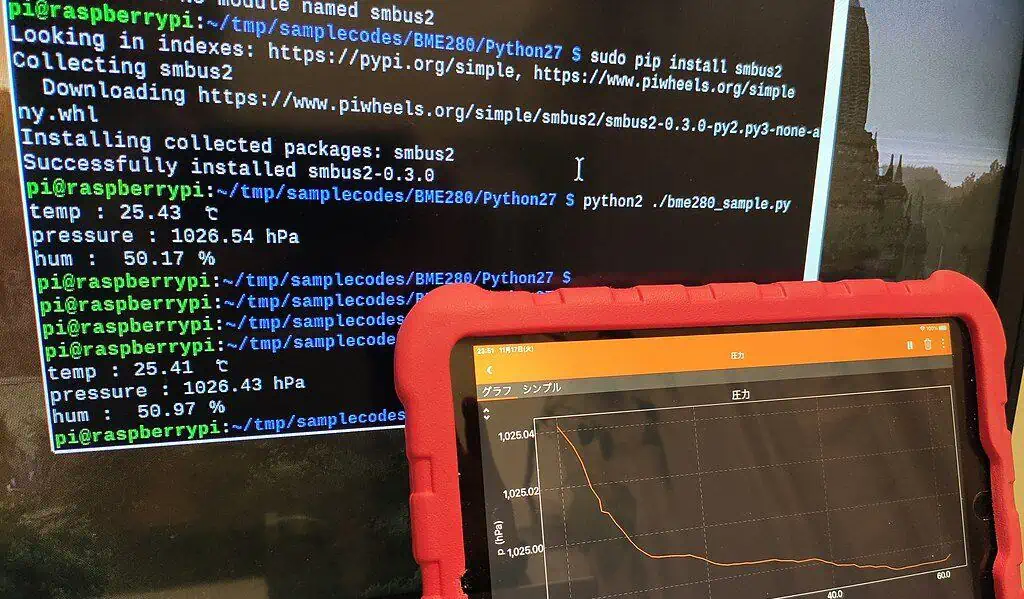
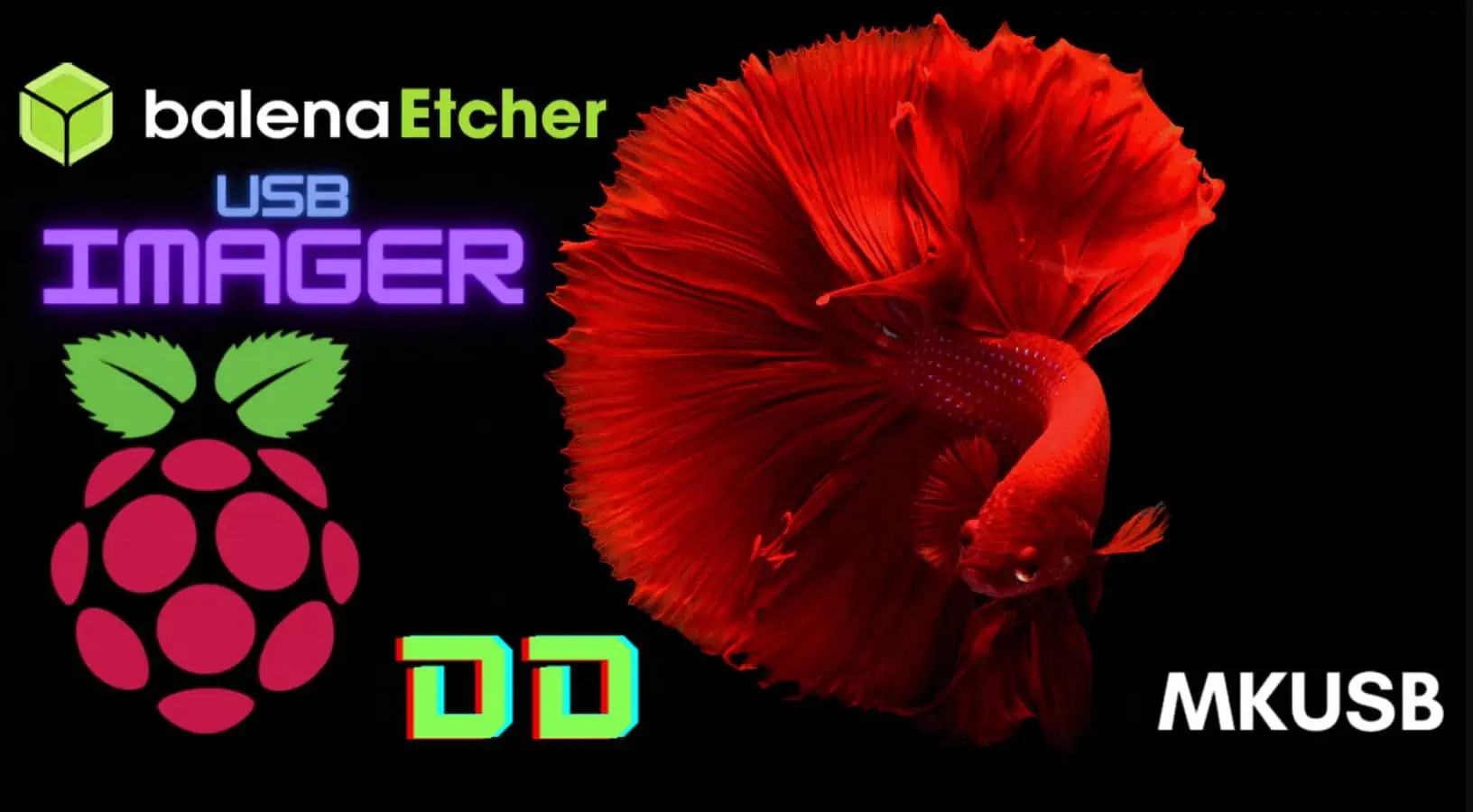
![8 Amazing Raspberry Pi Ideas [2022]: Beginners and Enthusiasts Raspberry Pi ideas](https://www.smarthomebeginner.com/images/2021/09/raspberry-pi-4-dev-board.jpg)
